How to apply
The UBC Okanagan Stober Undergraduate Research Fellowships have been established as a catalyst for excellence in health-related research and undergraduate student training within the School of Health and Exercise Sciences. The purpose of these awards is to introduce highly-talented international, national or local undergraduate students to research opportunities and the merits of pursuing a future MSc in our School. Thus, students with at least 12 months left in their program are strongly encouraged to apply. Students finishing their degree and already committed to a research Master’s program will also be considered but will not be considered a priority.
The School of Health and Exercise Sciences is committed to the truth and reconciliation process and calls to action for decolonization. Equity, diversity, inclusion, anti-racism, and anti-oppression are essential to academic excellence and research pursuit, and are core values of our School. An open and diverse community fosters the inclusion of voices that have been underrepresented or discouraged. We strongly encourage applications from students who identify as a member of an equity-owed group and/or students who have an interest in research that focuses on advancing our understanding of equity, diversity and inclusion in health research.
• Award is for the spring/summer months (i.e., May-August) apart from applicants from international institutions in the southern hemisphere who may use the award over the fall/winter months (in Canada).
• Awardees are expected to come to UBC-O during the duration of the award to experience UBC-O, the laboratory they are in and interact with other students in the SURF program.
• Awards cannot be deferred to another year.
• Awardees complete a minimum of 12 weeks and up to 16 weeks of research training on a health-related research project. Awards will vary between ~$7,250 and ~$9,500, depending on the number of weeks.
• Up to $1,500 is available to help offset travel expenses associated with relocating to UBC Okanagan (e.g., airfare, mileage, meals while travelling) and/or research expenses directly related to the project.
– Please note: the total award for salary, travel and research expenses cannot exceed $10,000.
• Successfully completed at least 2 years of an undergraduate degree.
• Awardees are expected to commit to full-time research for the duration of the project. Awardees will not be permitted to take more than 3 credits of coursework or other full-time employment during the award.
• Applicants cannot hold a SURF and another research award (e.g., NSERC USRA, IURA) simultaneously or be a previous recipient of a SURF award.
• Academic and extracurricular track record (30%).
• Novelty and feasibility of research proposed (30%).
• Demonstration of interpersonal skills or experience beneficial for research pursuit (40%).
• Please explain throughout the application how equity, diversity, and inclusion have been considered (e.g., in your previous lived, volunteer or community experiences, proposed research, outreach activities, training that you have undertaken etc.).
• Preference will be given to applications external to UBCO (especially international students), but internal applications are also encouraged.
Step 1: Contact an eligible HES faculty member (Dr. Phil Ainslie, Dr. Miho Asano, Dr. Brian Dalton, Dr. Neil Eves, Dr. Glen Foster, Dr. Heather Gainforth, Dr. Hashim Islam, Dr. Jennifer Jakobi, Dr. Mary Jung, Dr. Jonathan Little, Dr. Kathleen Martin Ginis, Dr. Ali McManus, Dr. Chris McNeil, Dr. Robert Shave, Dr. Paul van Donkelaar) to discuss your interest in applying for the award. To learn more about the research interests of each faculty member, visit the HES Contact & People webpage and our meet the team videos.
Step 2: Once you have a commitment from a faculty member to support your application, work with the prospective supervisor to complete the application, which includes the Stober application form, a 2-page CV, and your academic transcripts.
Step 3: Email your complete application to our undergraduate office (hes.undergrad@ubc.ca).
Deadline to apply: Friday, February 21st 2025.
Meet the 2025 SURF Trainees
 Brydie Lemkes
Brydie Lemkes
Supervisor: Phil Ainslie & Madden Brewster
My name is Brydie Lemkes, I grew up in the small town of Bragg Creek, Alberta. I recently graduated with a degree in Health and Exercise Science from UBC Okanagan and will be beginning my Master’s this fall under the supervision of Phil Ainslie. My long-term goal is to pursue a career in research or teaching within the field of health and exercise science. This summer, I’m working with Phil Ainslie and Madden Brewster on a project looking at the impact of wildland fire suppression on the cardiorespiratory health of Wildland Fire Fighters. Specifically, my research focuses on toxic metal exposure using pre- and post-season toenail analysis, a non-invasive method to better understand long-term health risks. This study fills a critical gap in current research and aims to support the well-being of those working on the frontlines of wildfire management.
 sEAN McIntyre
sEAN McIntyre
Supervisor: Dr. Hashim Islam
I have had the privilege to call Kelowna home for all my life. I have always enjoyed physical activity such as weight training, and outdoor activities like hiking and playing soccer. Spending time outdoors has fostered my passion for life sciences and is a big reason for why I am pursuing a biology degree at UBCO. After my undergraduate degree I hope to continue my academic path and do a masters degree.
I am working with Dr. Islam in the Translational Metabolic Physiology Lab. My research focuses on how sulforaphane—a natural, anti-inflammatory compound—impacts immune cell metabolism. Mitochondria serve as important metabolic hubs which play large roles in our metabolism and immune function. Sulforaphane shows potential to be a natural method for improving mitochondrial function and reducing chronic inflammation, therefore improving our metabolic health. The findings of my research may provide new insights into how sulforaphane can be used in the prevention and management of chronic metabolic diseases.
 Arwyn MacIntosh
Arwyn MacIntosh
Supervisor: Dr. Hashim Islam
My name is Arwyn MacIntosh. I am from Thunder Bay, ON, with future career aspirations in clinical research for metabolic health and preventative medicine. This summer, I am working on a research project under the supervision of Dr. Hashim Islam in the Translational Metabolic Physiology Lab. Our study investigates how nicotinamide mononucleotide (NMN) supplementation affects mitochondrial function in immune cells from pre- and post-menopausal females.
This project is important because menopause increases the risk for metabolic disorders, in part due to changes in mitochondrial health. By exploring whether NMN can improve immune cell mitochondrial function, our research could help inform future clinical trials for safe, accessible interventions that support metabolic health during menopause. Through this work, I hope to contribute to research that improves health outcomes for underrepresented and at-risk groups.
 Charlie Kanuka
Charlie Kanuka
Supervisor: Dr. Jonathan Little
My name is Charlie Kanuka. I grew up in North Vancouver, B.C. and am very fortunate to have called Kelowna my home for the past three years of my undergraduate degree. My passion for exercise metabolism grew exponentially throughout my years at UBCO. All starting at the root of pursuing a career in medicine and helping those suffering from complex chronic illnesses. Working with Dr. Jonathan Little I am researching changes in immune cell phenotype during a 48-hour fast and a 48-hour fast with exercise. Specifically, whether we see a phenotypic shift in certain monocytes towards a more anti-inflamatory make up. I intend to take this knowledge to further advance my career to one day help discover new treatments for underepresented individuals with complex chronic illness.
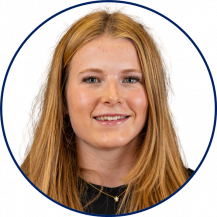 Isla MacPherson
Isla MacPherson
Supervisor: Dr. Brian Dalton
I’m grateful to have grown up in Kelowna, BC, but chose to go across the country for my undergraduate studies at the University of Guelph, where I’m pursuing a Bachelor of Science Honours in Human Kinetics while playing varsity field hockey. After completing my degree, I hope to attend medical school and pursue a career in orthopedics or sports medicine.
My interest in human performance, particularly the factors influencing strength and power, has been developed through a lifelong involvement in sports. This passion led me to research, where I connected with Dr. Brian Dalton and joined his lab for the summer. The study I am working on investigates the effect of circadian rhythm on neuromuscular function. By measuring rate of torque production and peak power at different times of day, our study aims to identify when individuals may be physically strongest. This research has the potential to inform athletic training schedules and rehabilitation practices, aligning performance with the body’s natural rhythms.
 Anthony Salvati-Taylor
Anthony Salvati-Taylor
Supervisor: Dr. Ali McManus
”My name is Anthony Salvati-Taylor, and I’m originally from Kamloops, BC. I moved to Kelowna in 2023 to begin my studies at UBC Okanagan, where I hope to one day be a pediatric health researcher or pursue a clinically related profession working with children, such as occupational therapy or a physician assistant.
I am currently working in the Pediatric Exercise Research Lab (PERL) under the supervision of Dr. Ali McManus on the MOTAFIT study, which explores how pubertal hormones influence vascular function in adolescents. Our team is assessing salivary hormone levels alongside vascular health markers like flow-mediated dilation in youth. One of the primary objectives of this research is to determine whether saliva can be utilized as a suitable, non-invasive, and valid index of hormonal change in puberty, an index that can reduce participation barriers and make pediatric research more inclusive.
This study is significant because puberty is a critical window for the establishment of long-term cardiovascular and metabolic well-being, yet much of the existing research has relied upon invasive blood sampling, possibly limiting who can or will participate. By making hormone testing less invasive, our research aims to enable more diverse populations of adolescents to be included in health research.
I am dedicated to the incorporation of equity, diversity, and inclusion into research as well as practice within healthcare. This project has been an incredible experience to develop my abilities, work on something meaningful, and build on an area that is closely related to my personal values and long-term goals.”
 Miyah Kailey
Miyah Kailey
Supervisor: Dr. Brian Dalton & Dr. Kathleen Martin-Ginis
My name is Miyah Kailey and I was raised in Airdrie, Alberta. With a longstanding passion for education and research, I chose to complete an honours thesis in Dr. Brian Dalton’s Sensorimotor Physiology and Integrative Neuromechanics (SPIN) lab. My research focused on the effects of acute edible cannabis intoxication on posture-cognition dual-tasking
In addition, I began working in Dr. Kathleen Martin-Ginis’ Spinal Cord Injury Action Canada (SCI AC) lab, motivated by my aspiration to pursue a career in occupational therapy. This summer, with the support from the Stober Foundation, I had the opportunity to lead a knowledge translation project for Spinal Cord Injury BC. The project centers on making information about cannabis use among individuals with spinal cord injuries (SCI) more accessible. While cannabis presents both therapeutic potential and possible risks for this population, our goal is to provide evidence-based discussions that acknowledges cannabis as a potentially beneficial therapeutic option for certain individuals.
Despite controversial opinions surrounding cannabis use, I am sincerely grateful to the Stober Foundation for enabling me to contribute meaningfully to the SCI community. This experience has allowed me to pursue my passion for research while making a positive impact. I extent my heartfelt thanks for the opportunity to support and inform a community that continues to inspire me.
 Makenna Clark
Makenna Clark
Supervisor: Mary Jung
I’m Makenna Clark, and I’m from Calgary, Alberta. I decided to attend UBC Okanagan because of the university’s academic opportunities, and to support my aging family by moving closer to them. About halfway through my degree, I took a class in health psychology. I learned about applied health behaviour change theories and motivational interviewing. These concepts resonated with me because I could understand what makes people want to change. Additionally, it was interesting seeing how we can help people achieve their goals, meet them where they are at, overcome obstacles, and become more confident in themselves to make positive changes.
One of the projects I am assisting with delivering is “Efficacy of movement breaks in real-world settings.” Physical inactivity in adults is an independent risk factor for various negative health outcomes, such as chronic diseases and cardiovascular diseases. In this study, inactive adults are asked to complete four short (60-120 seconds), intense workouts throughout the day, five days a week, for 12 weeks. My role in the study is delivering one-on-one coaching to the participants. During my training for these coaching sessions, I have learned how to be curious about the participants’ goals and values. How to explore their strengths and understand what they are coming into the study with, what is motivating them to make these changes, and what barriers they face. After understanding the participants’ barriers and facilitators, I can tailor the intervention to fit into their daily life, making it more likely that they can follow through on their goals and adhere to the study.
Emma Shipalesky
Supervisor: Miho Asano
I’m originally from Fort St. John, British Columbia, I moved to Kelowna to pursue an undergraduate degree. After my undergraduate degree, I hope to pursue medicine, and potentially go back up north to practice.
This summer I am working with Dr. Miho Asano to investigate elder orphans (EO) within our community and their wellbeing. The purpose of this study is to identify the gaps between the literature and what is currently out there (support programs) for EO living without adult advocates. This is important because the number of EO is expected to continue growing worldwide, including Canada. EO can be socially and/or physically isolating without available known families, designated surrogates, or caregivers. The existing literature on EO, although limited, has a growing emphasis on the importance of supporting them as they often experience more complex psychosocial, physical and medical issues. The new knowledge generated from this project will be used for the future development of a program (e.g., health promotion, wellness and education programs) to continue supporting EO and their community, locally in Kelowna.
Meet the 2021 SURF Trainees
Amanda Holyk
Conducting a behavioural research study investigating the impact of COVID-19 on the delivery of pulmonary rehabilitation (PR).
“I believe my project will provide important evidence to help optimize in-person and online pulmonary rehabilitation programs across Canada. Utilizing the results of my study, I would like to create Canadian guidelines on how to ideally implement online pulmonary rehabilitation. My overall goal is to help improve the health-related quality of life for people with chronic respiratory disease(s).”
Learn more
Conan Shing
Investigating the factors influencing periodic breathing during sleep at high altitudes.
“My particular project is important as it fills a gap in current literature regarding measures of sleep apnea. Current measures of sleep apnea, like the apnea-hypopnea index (AHI), are a crude and unrefined measure of sleep apnea inaccurately representing its duration and severity. Through this project, I hope to find relationships between AHI and several other variables to discover a more accurate and informative way to present sleep apnea severity.”
Learn more
Jenna Sim
Developing cultural safety and inclusivity training modules in Small Steps for Big Changes diabetes prevention program.
“This project is important because it will test the efficacy and acceptability of a cultural safety and inclusivity training module for coaches of Small Steps for Big Changes (SSBC), a diabetes prevention program. By testing this training module we will determine if it can effectively train SSBC coaches to deliver safe, equitable, and un-biased diabetes prevention care.”
Learn more
kate Crosby
Working to understand the social and physical needs of older adults to optimize active and healthy aging at home.
“This research will further our understanding of how to optimize active and healthy aging at home by increasing our understanding of the social and physical supports for aging. My project will benefit older adults by providing information which will maintain a level of independence and stay in the comfort of their own home.”
Learn more
 Brydie Lemkes
Brydie Lemkes sEAN McIntyre
sEAN McIntyre Arwyn MacIntosh
Arwyn MacIntosh Charlie Kanuka
Charlie Kanuka Isla MacPherson
Isla MacPherson Anthony Salvati-Taylor
Anthony Salvati-Taylor Miyah Kailey
Miyah Kailey Makenna Clark
Makenna Clark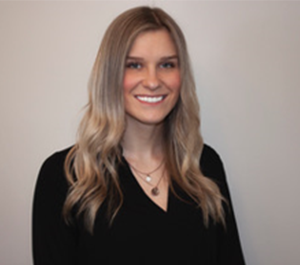
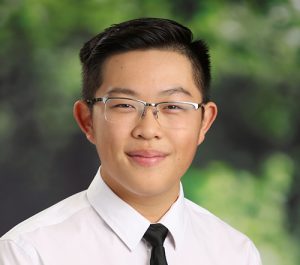




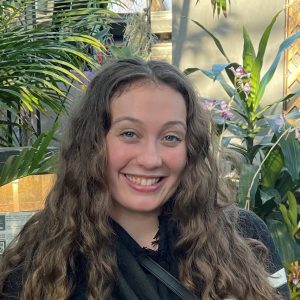
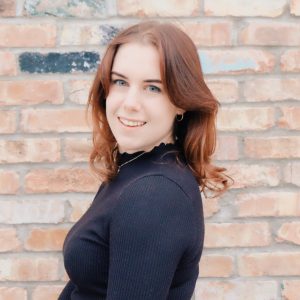

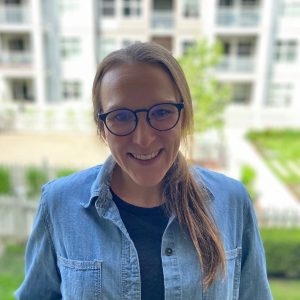
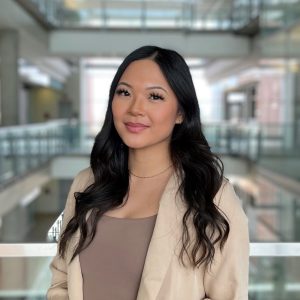
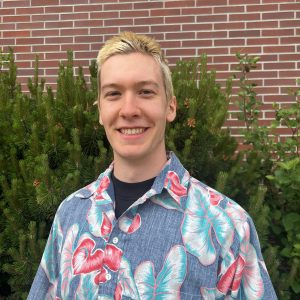
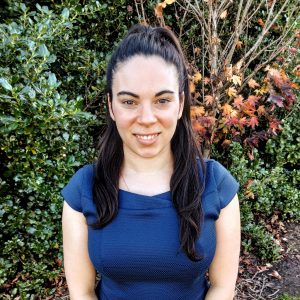
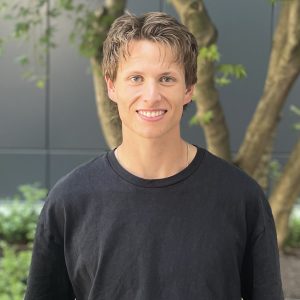
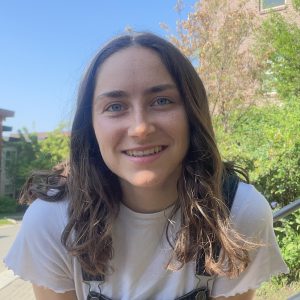
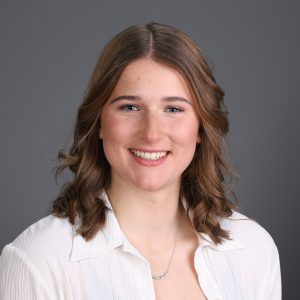
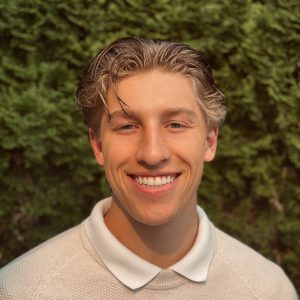
 PAIGE Reekie
PAIGE Reekie Leah Kinahan
Leah Kinahan Daniel MacCallum
Daniel MacCallum Raj Ahluwalia-Pullam
Raj Ahluwalia-Pullam ALIYA Mottus
ALIYA Mottus Madison Sagert
Madison Sagert